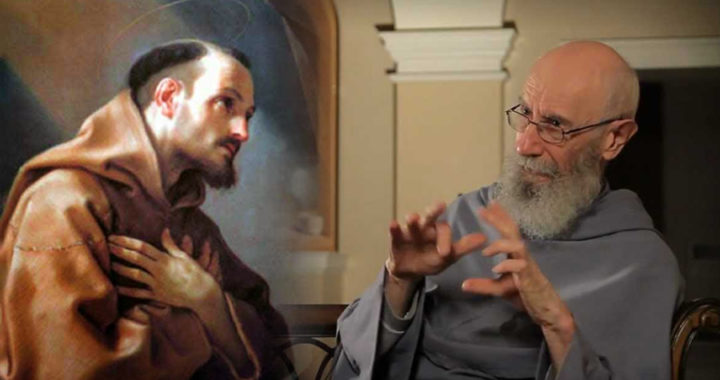Bonaventure’s notion of the human soul is significant because it unifies four key concepts of humanity in a convenient and congruous way. The four concepts he unites are:
- The dimensions of being experienced by the soul, of which there are three:
- Purgation: the cleansing of the soul by grace
- Illumination: the enriching of the soul by grace
- Union: the perfection of divine conformity by grace
- The modes of action the soul can execute, of which there are three:
- Intellect: the soul’s capacity to know/understand
- Memory: the soul’s capacity to remember what it knows/understands
- Will: the soul’s capacity to act freely
- The powers the soul may access, of which there are three:
- Understanding: the power of the intellect
- Remembrance: the power of our memory
- Love/Charity: the ultimate goal of our human freedom
- The exercises the soul undergoes in order to move from one dimension of being to the next, of which there are three:
- Meditation: to incline toward the divine in an intellectual way
- Prayer: to incline toward the divine in an affectionate way
- Contemplation: to be one with the divine
Notice that each of the four concepts are divided in a “triple way”. The importance of this is twofold:
- The divisions exist in a hierarchy of perfection. In other words:
- Purgation leads to illumination, which leads to union.
- Knowing leads to remembrance of what we know, which leads to us loving what we remember (and so forth…)
- The divisions for each of the four concepts correspond with one another according to this hierarchy. In other words:
- Purgation relates to intellect, which relates to understanding, which relates to meditation.
- Illumination relates to memory, which relates to remembrance, which relates to prayer.
- Union relates to the will, which relates to love, which relates to contemplation.
This second point can be illustrated as follows:
|
|
|
|
|
|
|
|
|
|
|
|||
|
|
|
|
|
|
|
|
|
|
|
|||
|
|
|
|
|
|
|
|
|
|
|
|||
|
|
|
|
|
|
|
|
|
|
|
|
|
|
|
|
|
|
|||
|
|
|
|
|
|
|
|
|
|
|
|||
|
|
|
|
|
|
|
|
|
|
|
|||
|
|
|
|
|
|
|
This concept of the soul satisfies Bonaventure’s desire to understand how our own humanity mirrors the divine oneness of God. At any given moment of our lives, our souls experience a unification of being, mode, power, and exercise. This orderliness is beautiful, convenient, and fitting since man is made in God’s image and likeness, and God is himself perfectly ordered.
Bonaventure’s teaching stands apart from what other popular Catholic Doctors offer. A notable example is that of St. Thomas Aquinas, who leans heavily on the Aristotelian notion that the soul has only two faculties (the intellect and the will), and therefore possesses only two powers (to know and to love). If we adopt this conceptualization of the soul, then the chart above is thrown out of sync, and we no longer have a perfect correlation of all the soul’s facets. In fact, one cannot even attempt the above chart using Thomas Aquinas’s concept of the soul because there is no congruous relationship that connects the divisions of being, mode, power, and exercise.
According to Bonaventure, the human will is inherently free. Not only is it possible for humans to choose between things that are not necessarily moral (like whether to eat this or that type of food, or whether to wear this or that type of shoe), we truly have the power to choose between that which is morally good and that which is morally bad. However, the ability to choose goodness is reliant upon God’s grace. It takes divine assistance for us to be holy or choose holiness.
Here we see how the above chart applies to our personal sanctity. God’s grace moves us from meditation to prayer to contemplation – from purgation to illumination to union – so that ultimately, our intellect is cleaned, our memory of God is illumined, and our will becomes truly one with God’s will. And we, having attained union with God’s will, may freely live as an expression of God’s love.

Hi, this is a comment.
To delete a comment, just log in and view the post's comments. There you will have the option to edit or delete them.